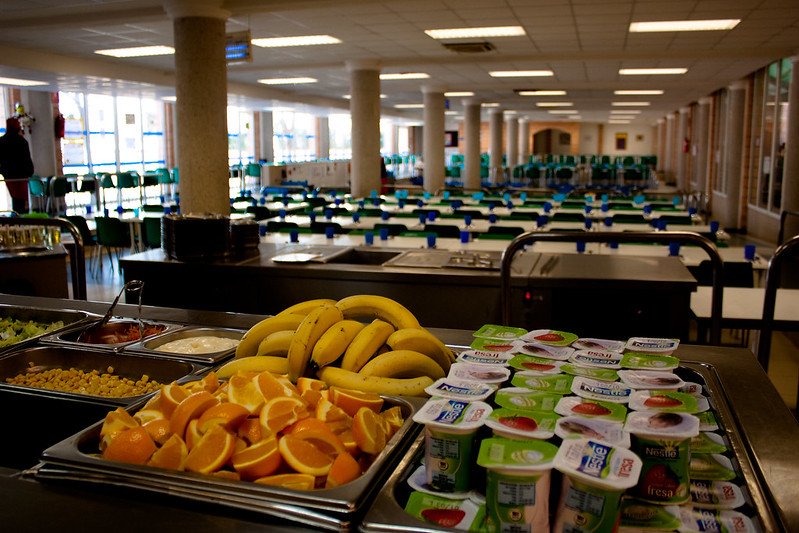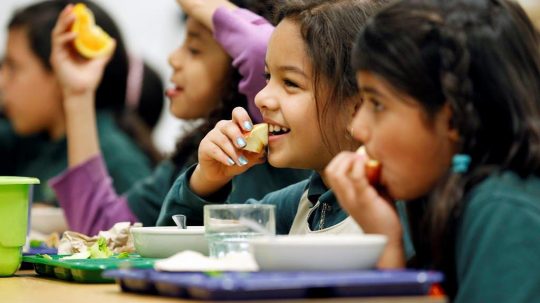A Bill has been tabled to extend eligibility for free school meals to all children in state primary schools. It was read for the first time in front of the House of Commons last month by Zarah Sultana, MP for Coventry South.
In the UK, approximately 4 million children are growing up in poverty, with almost a quarter of them not currently receiving a free meal at school.
Sultana said of the Bill: “It is a solution to children crying because they have not had a decent meal all day, and an answer to kids who feel that they have to steal food just to get by. It would extend free school meals to all primary school children, guaranteeing that they get a good, healthy meal each day.”
Children need a decent lunch to help them thrive at school
Peter, a teacher from Leeds, spoke to Sultana about a seven-year-old child at his school who he found crying, fearful that there was no food at home. Another student was stealing food from the school’s breakfast club to make sure he had something to eat when he got home.
The Bill could help address educational inequality and improve children’s health. Just 1.6% of packed lunches are estimated to meet the government’s school food standards of nutrition, so it should not come as a surprise that obesity rates fell when the government introduced free school meals for infants in 2014 and unhealthy packed lunches were replaced by healthy school meals.
The existing means-tested policy of free school meals for some primary school pupils has been criticised for being exclusionary, as it requires a family’s income to be below £7,400 and for them to be receiving certain benefits to qualify for the scheme.
Sultana said: “People who received free school meals as children explained to me that they do not know how they would have managed without them. Others explained the shame they felt or the bullying they endured after being identified as a free school meal kid. My inbox is flooded with heartbreaking accounts like those. Of course, they are just a tiny example of the pain and anguish that children experience when they are denied a decent meal.”
The Bill would remove a stigma from children who rely on free school meals. Sultana echoed this point in her address, saying: “Pupils who receive free school meals tell me that they feel embarrassed and ashamed, and that they are mocked and bullied. We might wish that those things did not happen, but they do.”
At a local level, some councils already adopt the policy
Recognising that Article 2 of Protocol 1 to the UK’s Human Rights Act protects children’s right to an effective education, some local authorities in the UK already guarantee a free school meal for all primary school children in their area. The London Borough of Islington adopts this approach, contending that the benefits of the policy far outweigh the cost. Councillors and campaigners there and elsewhere argue that hungry or sugar-rushing children who cannot concentrate risk disrupting their peers’ education, as well as their own. They point out that just because a child’s family may be relatively well-off does not necessarily mean they will get a nutritious lunch. They explain, too, that some of the cost of such a scheme is recouped through the resultant increase in ‘pupil premium’ payments to schools.
The next reading of the Bill will be on 20 January 2023.





